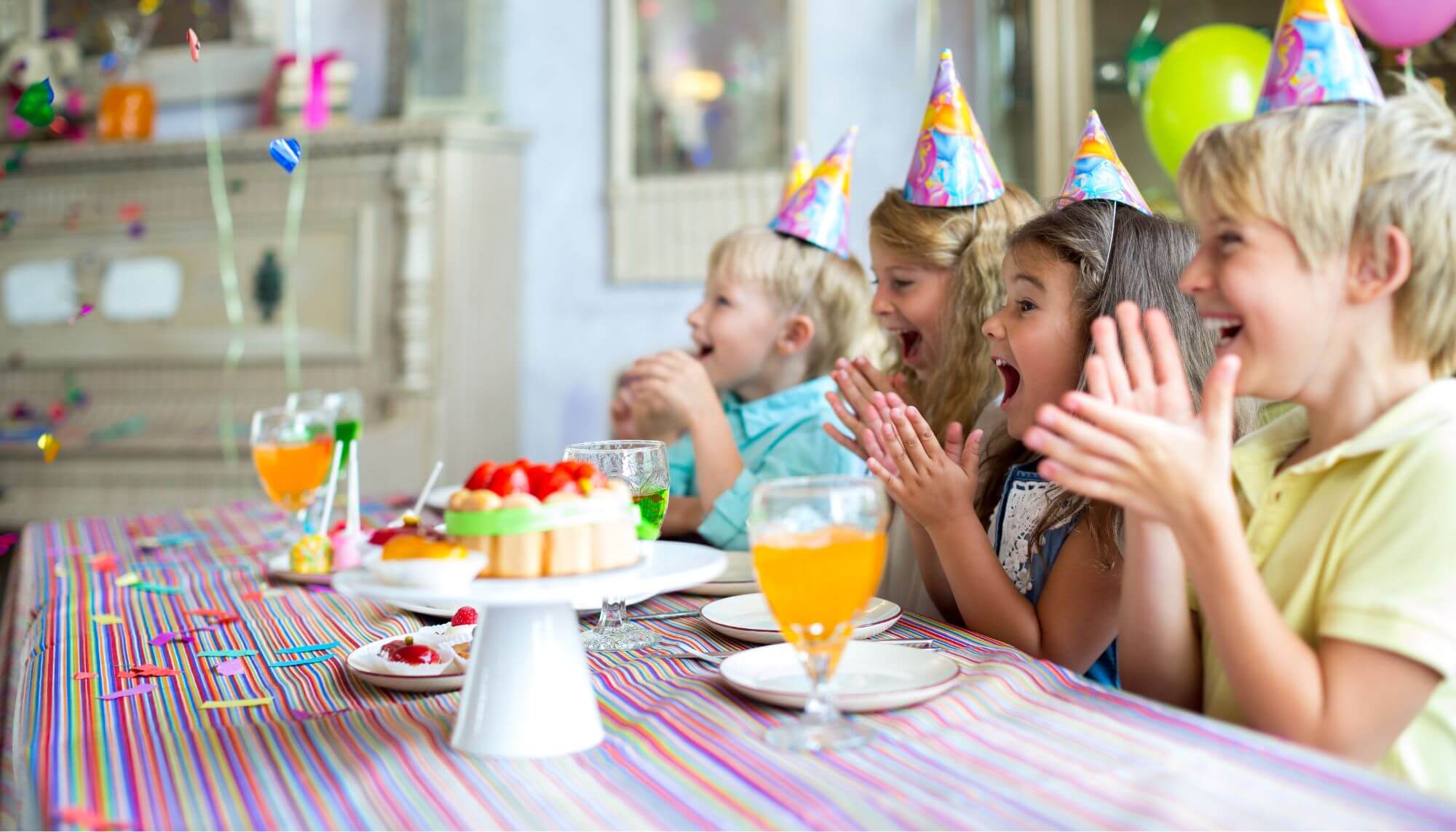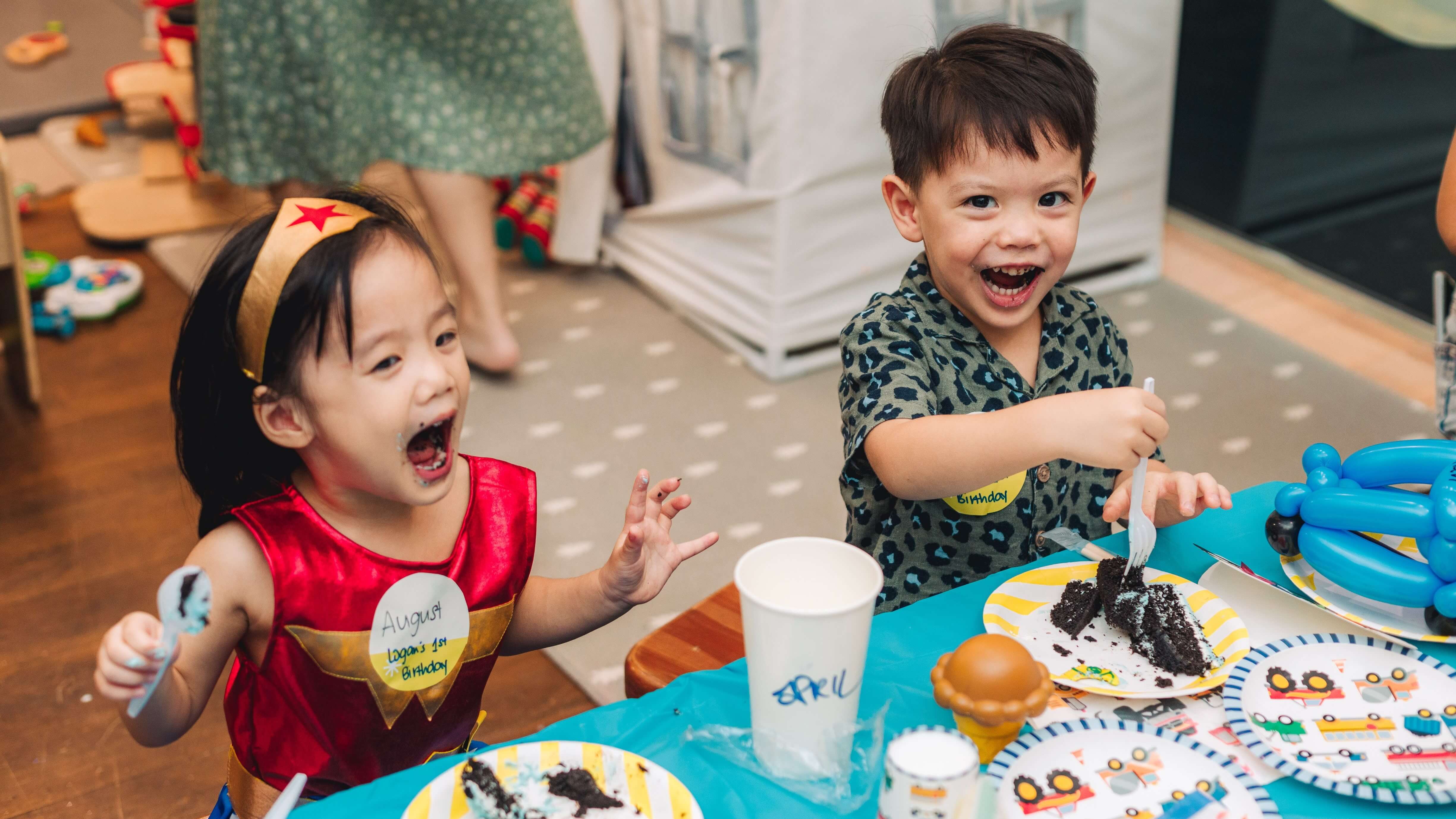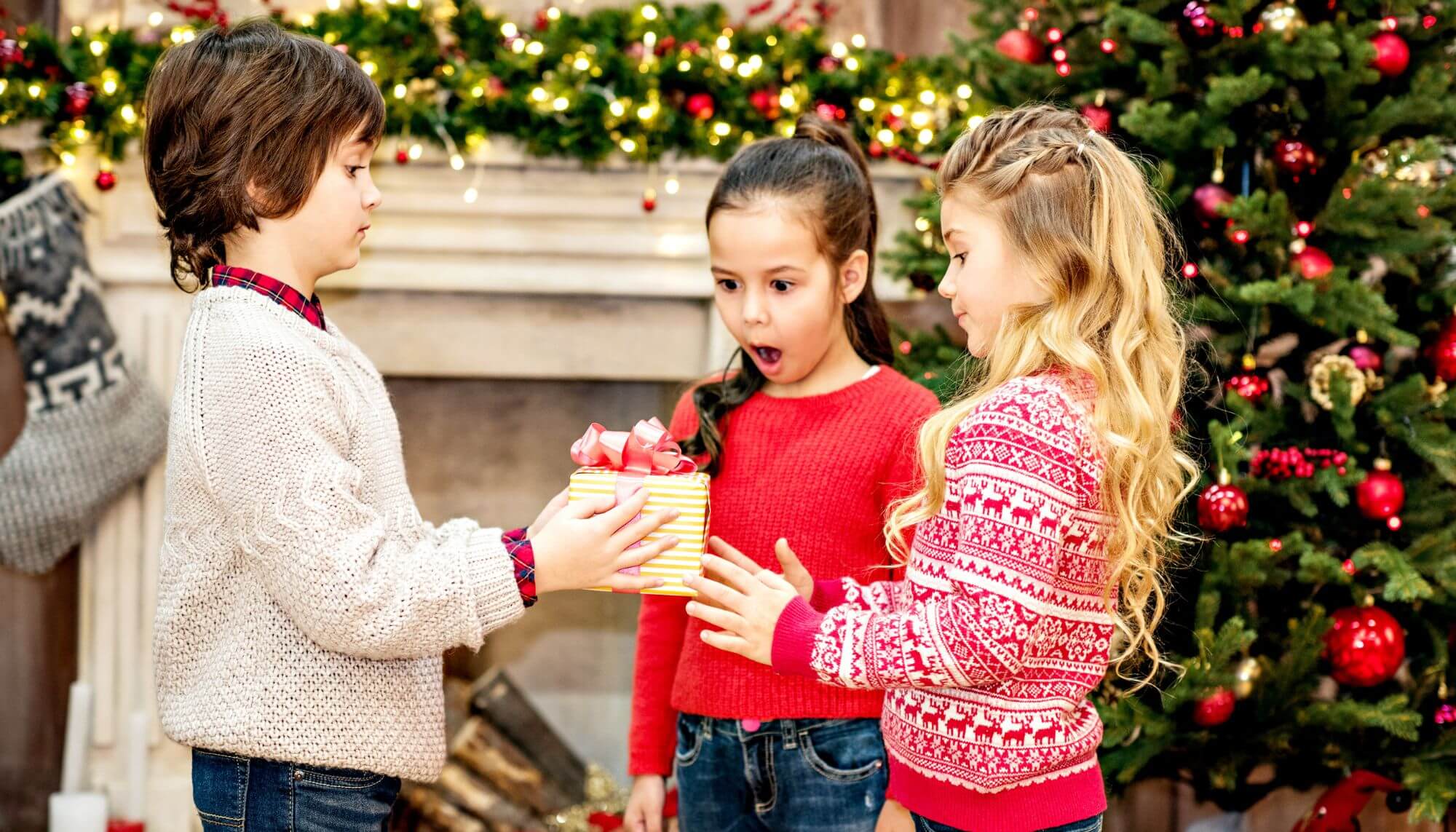Party-Powered Lessons

By Sheena Low
Hey there, parents of Thailand’s tiniest social butterflies! If you're wondering how to make your little one's party experience a lot more meaningful, we've got your back. From using good manners to embracing the hidden messages behind celebrations, we've rounded up ten lessons parties can teach your child. Get ready to add some wisdom into the chocolate-fuelled chaos!
1. Good manners are like confetti—sprinkle them everywhere!
First things first—manners! These are the magic sauce that makes any party pop, and amid the excitement, you’ll find plenty of opportunities to teach your little one to say "please" and "thank you".
A classic way to teach this is when your kiddo asks for that cookie or balloon animal without saying “please”, just ask them “what’s the magic word?”. This reinforces a good habit and you may even find your kiddo reminding you back like my two-year-old, Augie, does.
2. The art of gifting
It's not about the size of the gift; it's the thought that counts. A heartfelt note or a homemade drawing can mean the world to someone. Teach your child this by helping them make a card for their friend's birthday and letting them pick out a small but thoughtful gift.
3. Party time: More than cake and balloons
Parties are like life's sprinkles—they make the everyday extraordinary! Your little one may not yet understand that parties aren't just about cake; they're also about celebrating love, achievements, and togetherness. That’s OK! Taking your child along and sharing tales of your family's epic celebrations will teach them all about your traditions.
I didn't understand the importance of tradition until I got older. And boy am I glad I had all of those family celebrations, ranging from an aunty and uncle’s wedding anniversary through a brother’s graduation ceremony to a cousin’s first job offer. Even if I was sometimes forced to attend when I just wanted to read and play, those memories are ones I’ll cherish forever. I’ll always remember my mom explaining to me why we’re celebrating and what it means. It’s a tradition I’ll pass down to Augie, knowing she’ll have that aha moment when she’s older.

4. Family: The original party crew
You know what's cooler than a disco ball at a party? Your family! Celebrations are the perfect chance to reinforce the value of family. Encourage your little one to spend time with grandparents, cousins, and siblings—those connections are the real presents.
It’s always scary meeting new people, so do your best to make it fun. We started off introducing Augie to all of her aunties and uncles by asking her “who do they look like?”. This helped to build recognition and comfort. Using proper terms like “por por” (grandma from mom’s side), “nai nai” (grandma from dad’s side), and “fu fu” (uncle), helped her to build vocabulary and a sense of connection.
5. Community connection
Parties aren't just confined to your inner circle; they're a chance to build bonds with the community. Take your little one to local festivals and celebrations. Show them the power of belonging to a larger world where friendship is the golden ticket.
6. Culture and customs
Living in Bangkok is like having a party passport to a world of cultures and customs. If you're at a Thai party, introduce your child to traditions like the "wai." Or, if it's a global affair, explain different customs and why they're meaningful.
Cultures enrich us. I often ask Augie “where were you born?”, “what ethnicity are you?”, “what nationality are you?”. Combined with key events like the Mooncake Festival, it really ingrains a sense of culture. It’s also never a bad thing to have an excuse to eat dumplings.
7. Respect: The golden rule of parties
The secret to being a star guest? Respect! Show your child how to thank the host, help with the cleanup, and be welcoming to others. Remember, a polite kid is like the disco ball of the party scene!
8. Sharing and parental expectations
Ah, the age-old sharing dilemma. Kids can quickly get overexcited at a party and forget that they know how to share. The valuable lesson here is in reminding ourselves that it's perfectly OK for a child to keep what’s theirs to themselves—like the piece of cake they’re still finishing which another kid wants to gobble up. As well as keeping your own expectations realistic, take this opportunity to model how to politely refuse when another child has their eye on something that belongs to your little one. If conflict crops up, validate any hurt feelings and redirect.
9. Emotional exploration: It's OK to be shy or disappointed
Parties can be a whirlwind of emotions, from shyness to delight to disappointment, so it’s important we manage our own expectations and show our kids it's perfectly fine to feel these feelings. If your child is a bit shy, let them hang out on the sidelines until they're ready to dive into the dance circle. And when they want to blow out the birthday candles, but it's not their birthday, talk about how it's natural to feel a little disappointed. Create a safe space for everything they’re feeling, both the lows and highs. Often we ignore our own low feelings and can habitually do this with our kids too. Teaching children to ignore their own feelings can only be bad for them in the long term. So let’s encourage a safe space.
Sometimes Augie just wants to chill when we’re at a loud party. Instead of creating shame by saying “hey, this is so fun! Go out and play!”, we say, “don’t want to join in yet? That’s OK. Sometimes Mommy and Daddy just want to chill too. Can we chill together?”
10. Gratitude: More valuable than a party favor
Lastly, parties are the perfect backdrop to teach your child about the power of gratitude. Help them understand it’s not just about getting stuff but about cherishing the people and love in their lives. A heartfelt "thank you" is the ultimate party favor that never goes out of style!
Thailand’s vibrant party scene is more than just a glittery whirlwind; it's a classroom for life lessons. So, get ready to rock the party scene with your mini-me, sprinkling life lessons as you go. And remember, it's a party—keep it fun, keep it real, and don't forget to dance like no one's watching!

Practice makes perfect!
Before heading to the next exciting party, you can engage in a little role-playing session with your child. This fun and educational activity is a fantastic way to model how to act at parties and impart valuable social skills, like including shy or alone children. This is especially relevant if you’re the host. Imagine you and your child are in your living room, getting ready for the upcoming shindig. You set the stage:
"Alright, kiddo, we're about to have a blast at the party. Let's play a little game to practice how to act."
Scenario 1: Welcoming the shy stranger
You start by pretending to be a new child at the party. Your child takes the role of the host. You approach the party, looking a bit shy and uncertain. Your child, in their role, welcomes you with a warm smile.
Child (host): "Hi there! I'm so glad you could come to the party. My name is [your child's name]. What's your name?"
You (shy newcomer): "I'm [make up a name]. I'm a bit nervous; I don't know anyone here."
Child (host): "No worries at all! We're all here to have fun. Come meet some of my friends, and we can play together."
Through this role-play, your child learns how to approach and include someone who might be feeling shy or alone. They understand that a friendly introduction and inviting the newcomer to join in can make a big difference to someone's party experience.
Scenario 2: Sharing and including
For the next scenario, you can pretend to be a child who wants to join in a game. Your child takes the role of a partygoer who is already playing a game with friends.
You (child wanting to join): "Hey, can I play with you guys?"
Child (partygoer): "Of course, join us. Grab a seat and get ready!"
This role-play demonstrates the importance of sharing and including others. Your child learns how to be a gracious host and a friendly partygoer by being open to new friendships and shared activities. Role-playing helps your child practice and understand the importance of inclusivity, kindness, and making others feel welcome. They can then carry these skills and attitudes with them to the party, ensuring that everyone has a fantastic time and memories to cherish. So, party on, little social butterfly, and let the inclusive games begin!
Photos courtesy of the author and Canva.
About the Author
Sheena Low is an aspiring children’s book author, mother to two-year-old August, and runs Super Fly Honey, a pole activewear brand. In December 2020, anticipating the need for a nanny following her surprise pregnancy, she moved from Amsterdam to Bangkok. When August was born, it turned out she wanted to swap her more-than-full-time working hours for life as a full-time mom. She’s still baffled how that seismic shift of identity occurred.
